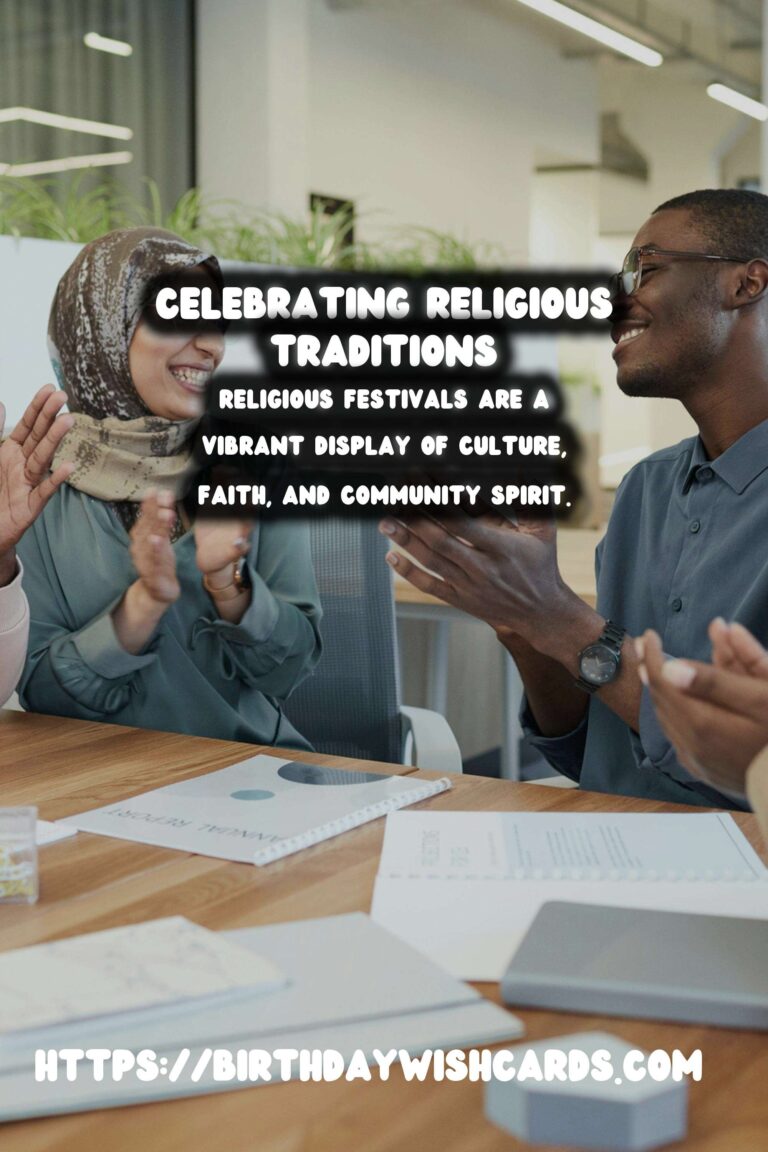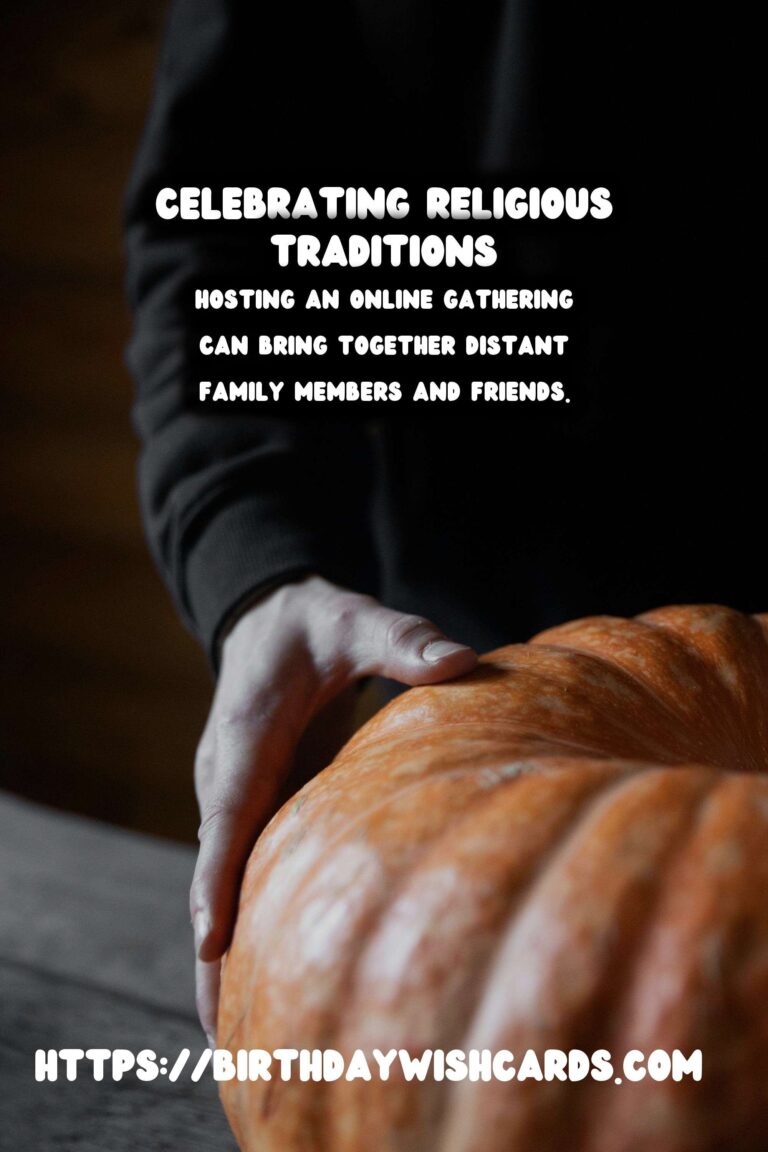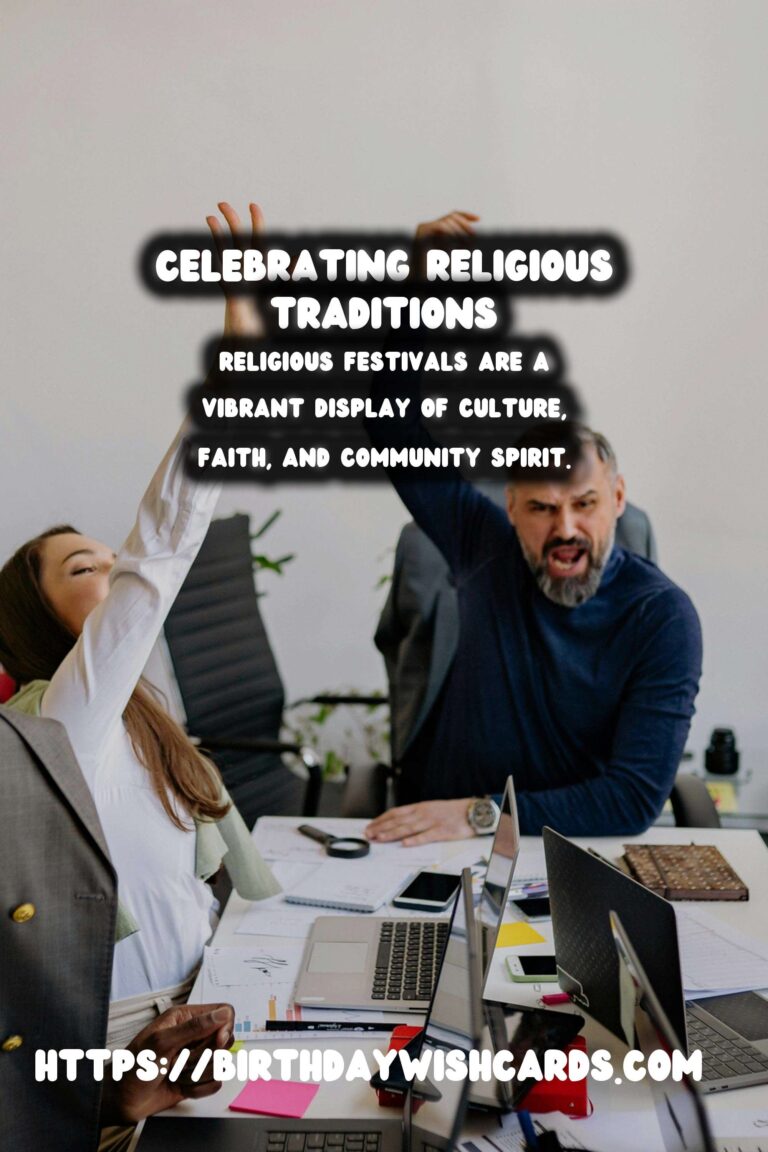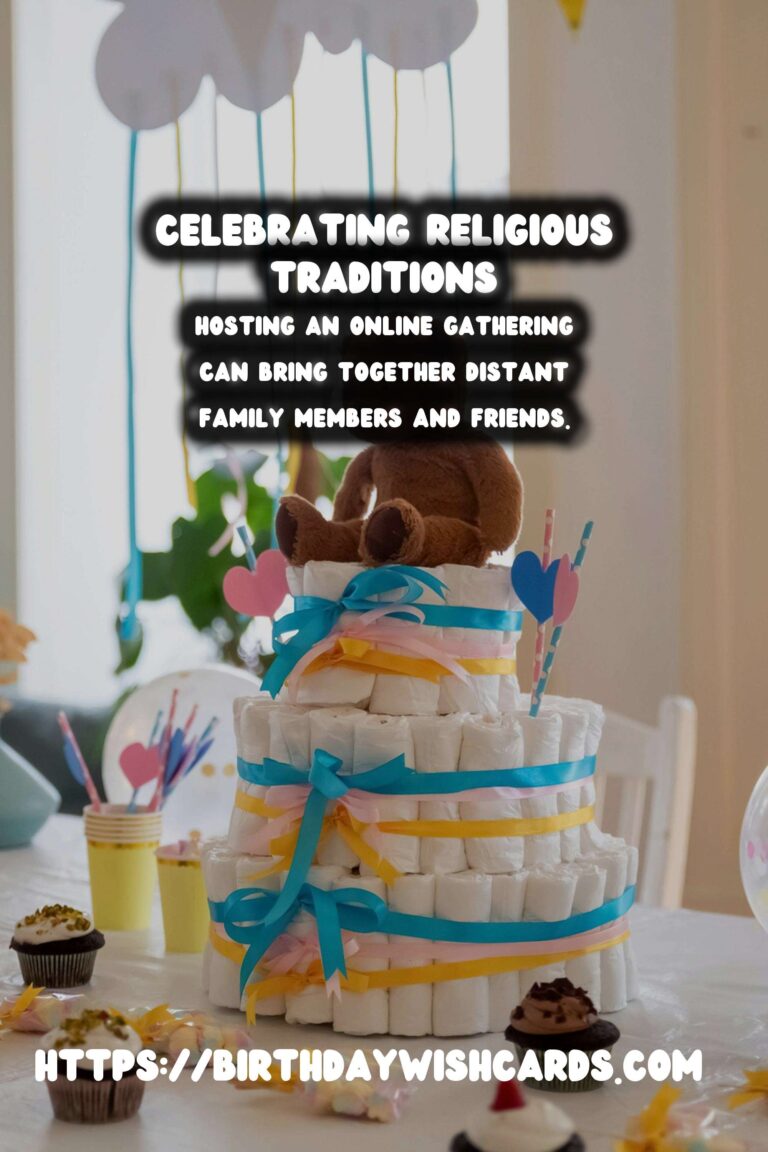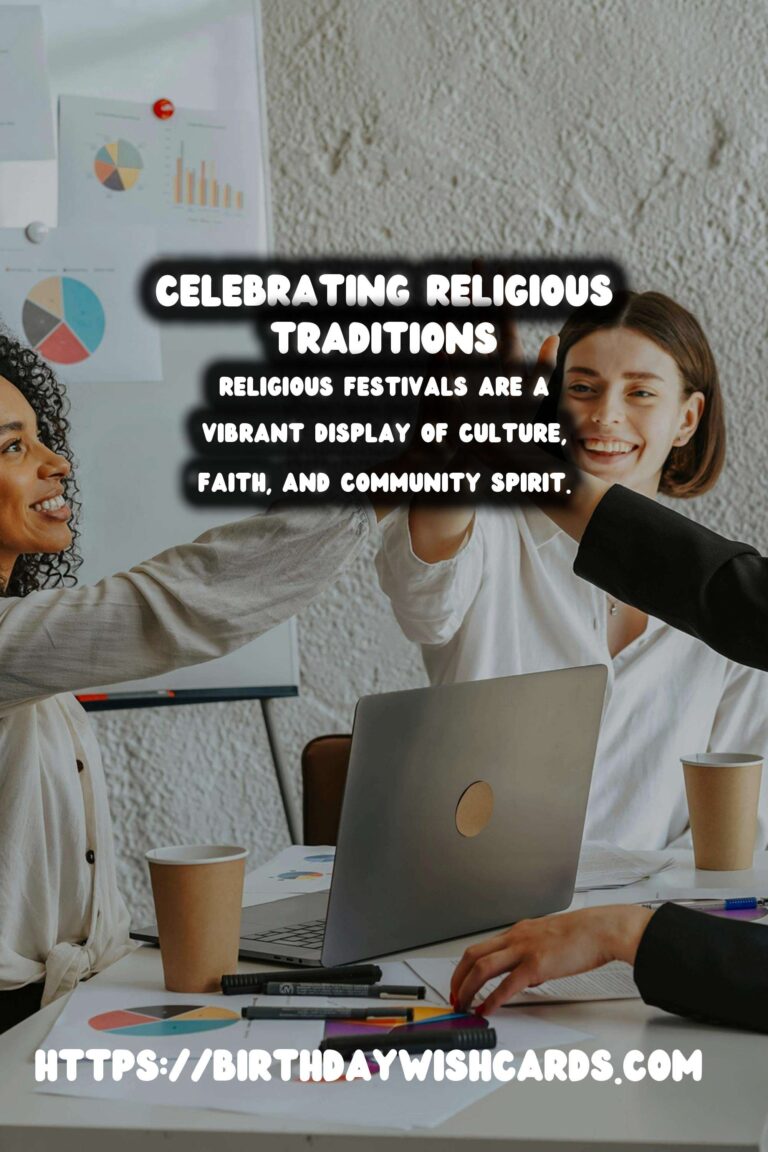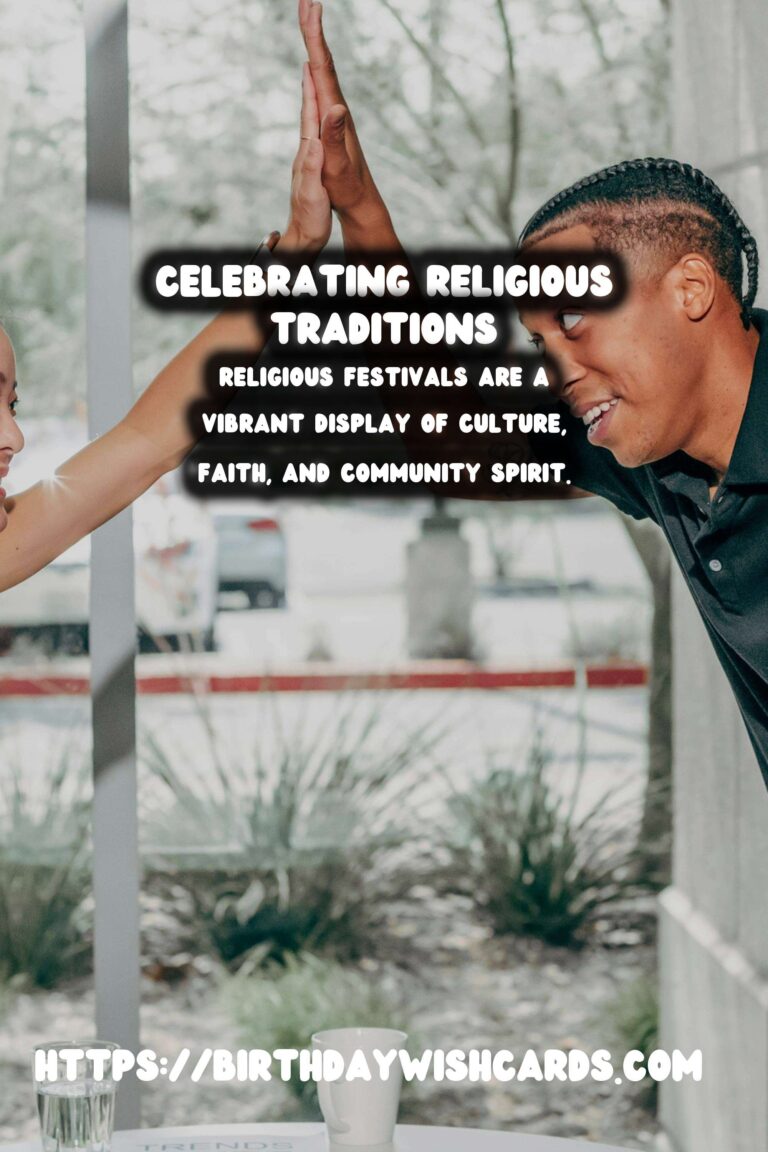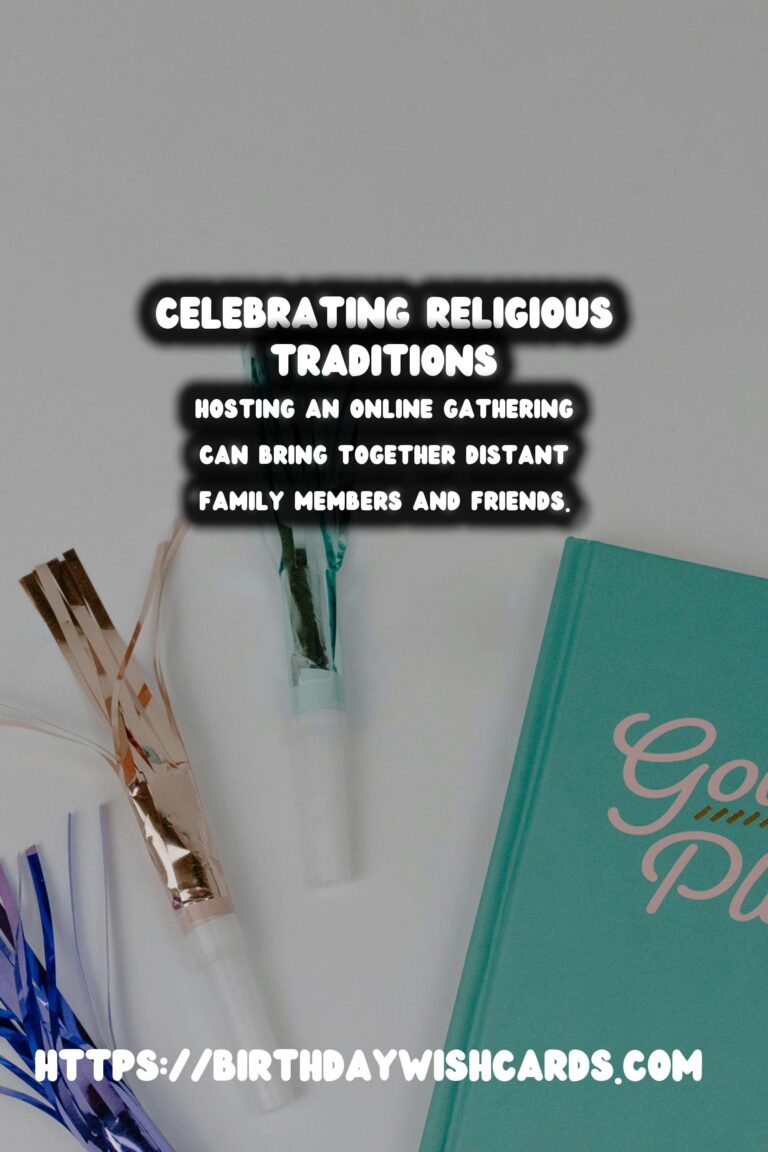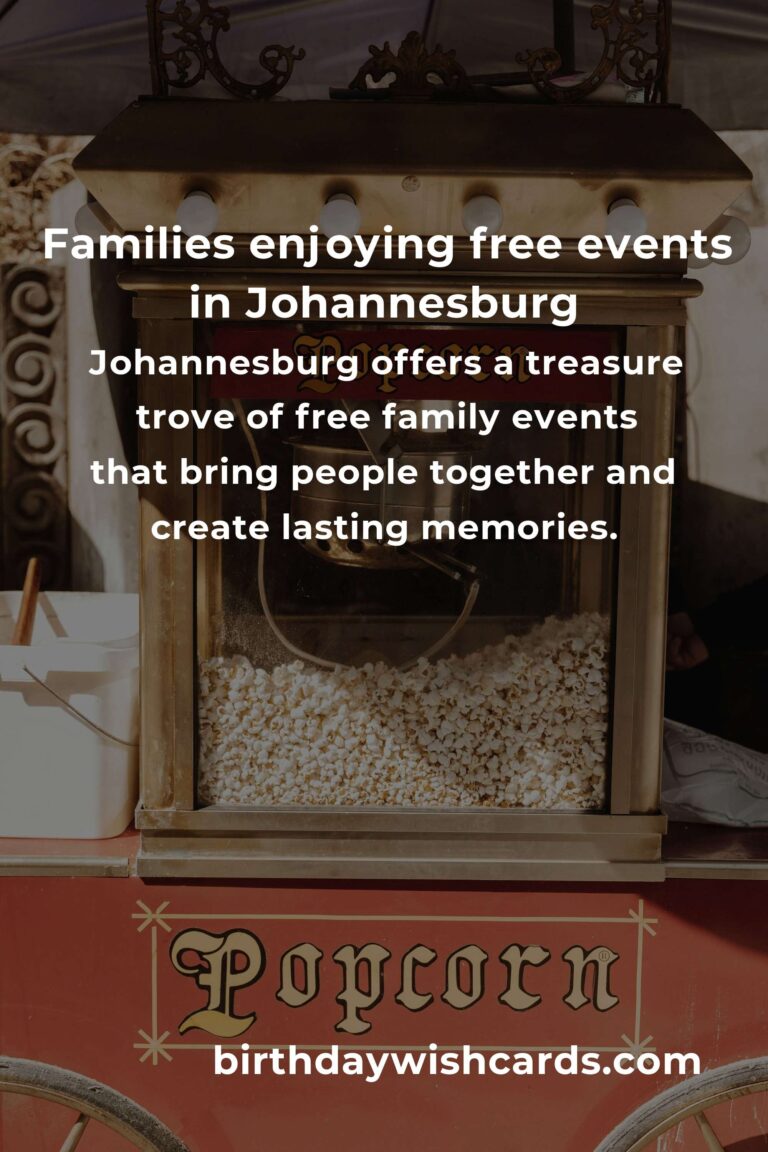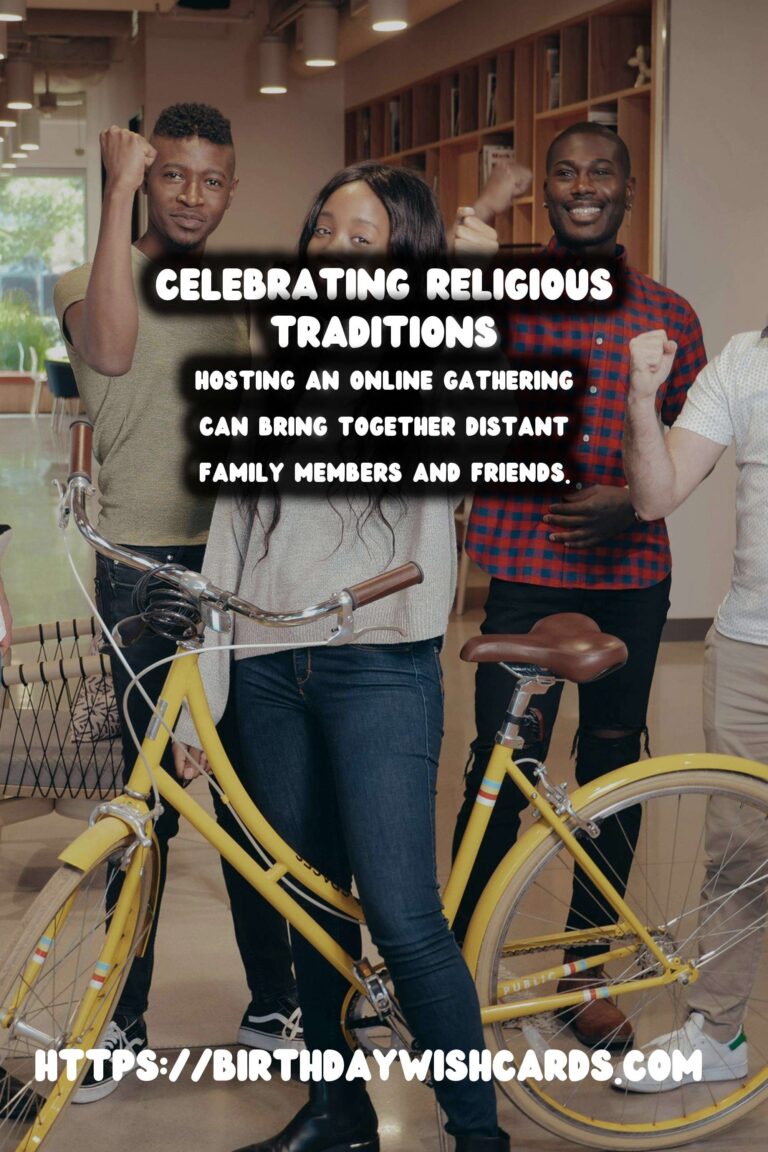
Religious festivals are a vibrant display of culture, faith, and community spirit. They offer a unique opportunity to gather with loved ones, reflect on traditions, and engage in meaningful celebrations. However, as society evolves, it’s essential to refresh the ways we celebrate these sacred occasions to keep them relevant and enjoyable for all. In this article, we will explore innovative ideas to celebrate religious festivals while honoring their core values.
1. Embrace Virtual Celebrations
In today’s digital world, virtual celebrations have become increasingly popular. Hosting an online gathering can bring together distant family members and friends, allowing everyone to partake in the festivities from the comfort of their homes.
Consider organizing a virtual prayer meeting or an online potluck where participants share their favorite recipes. This way, everyone can enjoy traditional dishes while discussing their significance and sharing personal stories.
2. Eco-Friendly Festival Ideas
As we become more conscious of our impact on the environment, incorporating eco-friendly practices into our holiday celebrations is a refreshing approach. This could include using biodegradable decorations, planting trees in honor of the festival, or preparing dishes with locally sourced ingredients.
Additionally, you can organize community clean-ups or charity drives that reflect the spirit of giving during the festival. These activities not only enhance the celebration but also benefit the environment and the community.
3. Cultural Introductions
Religious festivals are often intertwined with rich cultural traditions. By incorporating diverse cultural elements, you can create a more inclusive celebration. Invite speakers or performers from different backgrounds to share their experiences and traditions related to the festival.
For example, during Diwali, you might incorporate cultural music or dance from various regions of India, showcasing the festival’s diversity while fostering understanding and unity.
4. Creative Decorations
Refreshing the aesthetics of your celebration can significantly transform the ambiance. Instead of traditional decorations, consider DIY projects that encourage creativity and personal touch. For example, making hand-painted lanterns for Eid or crafting colorful rangolis for Holi can turn the preparation into a fun family activity.
Moreover, utilize natural elements in your decorations, such as flowers, leaves, or fruits, to connect with the season while promoting sustainability.
5. Interactive Workshops
Engaging activities can enhance the festival experience for all ages. Organize workshops that focus on traditional crafts, cooking, or spiritual practices associated with the festival. For instance, you could host a workshop on making festive ornaments or traditional sweets, sharing recipes that have been passed down through generations.
These hands-on experiences foster a deeper connection to the festival’s traditions and create lasting memories.
6. Community Service Initiatives
Give back to the community during religious festivals by organizing service initiatives. Encourage participants to volunteer at local shelters, hospitals, or charities as a meaningful way to honor the spirit of giving associated with the occasion.
This could include collecting food and clothing donations, preparing meals for those in need, or simply spending time with community members requiring care or support. Such actions strengthen community bonds and remind everyone of the festival’s core values.
7. Culinary Experiences
Food plays a central role in religious celebrations. To refresh this tradition, consider hosting a culinary competition or a potluck where participants can showcase their cooking skills. This can be accompanied by storytelling sessions where they share the history or significance of their dishes.
You might also explore fusion recipes that blend traditional elements with modern culinary techniques, creating a unique dining experience that appeals to all palates.
8. Themed Fashion Possibilities
Fashion is another exciting aspect of religious festivals. Introduce a theme for attire that reflects the festival’s essence, such as specific colors, motifs, or styles of clothing. Encourage attendees to participate by wearing traditional or contemporary outfits that resonate with the theme.
Additionally, you could organize a fashion show highlighting local designers or traditional wear, celebrating the cultural richness of the festival.
9. Integrating Technology
Integrating technology into your celebrations can enhance the experience. Use social media to connect with a larger audience, sharing live updates, photos, and videos from the festivities.
Consider creating a dedicated hashtag for the event, encouraging attendees to share their experiences online. Furthermore, use mobile apps for organizing activities or facilitating donations, making the celebration more efficient and engaging.
10. Reflective Practices
While festivals are about celebration and joy, they can also serve as a time for reflection and spiritual growth. Incorporate moments of mindfulness or meditation into the festivities, allowing participants to connect with their faith on a deeper level.
Creating spaces for quiet reflection or guided spiritual discussions can help participants appreciate their faith’s significance while celebrating.
Conclusion
Refreshing the ways we celebrate religious festivals can invigorate our traditions and strengthen our communal bonds. By embracing innovative ideas, we keep the essence of these sacred occasions alive while making them accessible and enjoyable for everyone.
As we explore these refreshing ways to celebrate, let’s remember that the heart of every festival lies in gratitude, togetherness, and love. By incorporating these themes into our festivities, we honor our traditions while paving the way for future generations to continue the legacy.
Religious festivals are a vibrant display of culture, faith, and community spirit. Hosting an online gathering can bring together distant family members and friends. 
